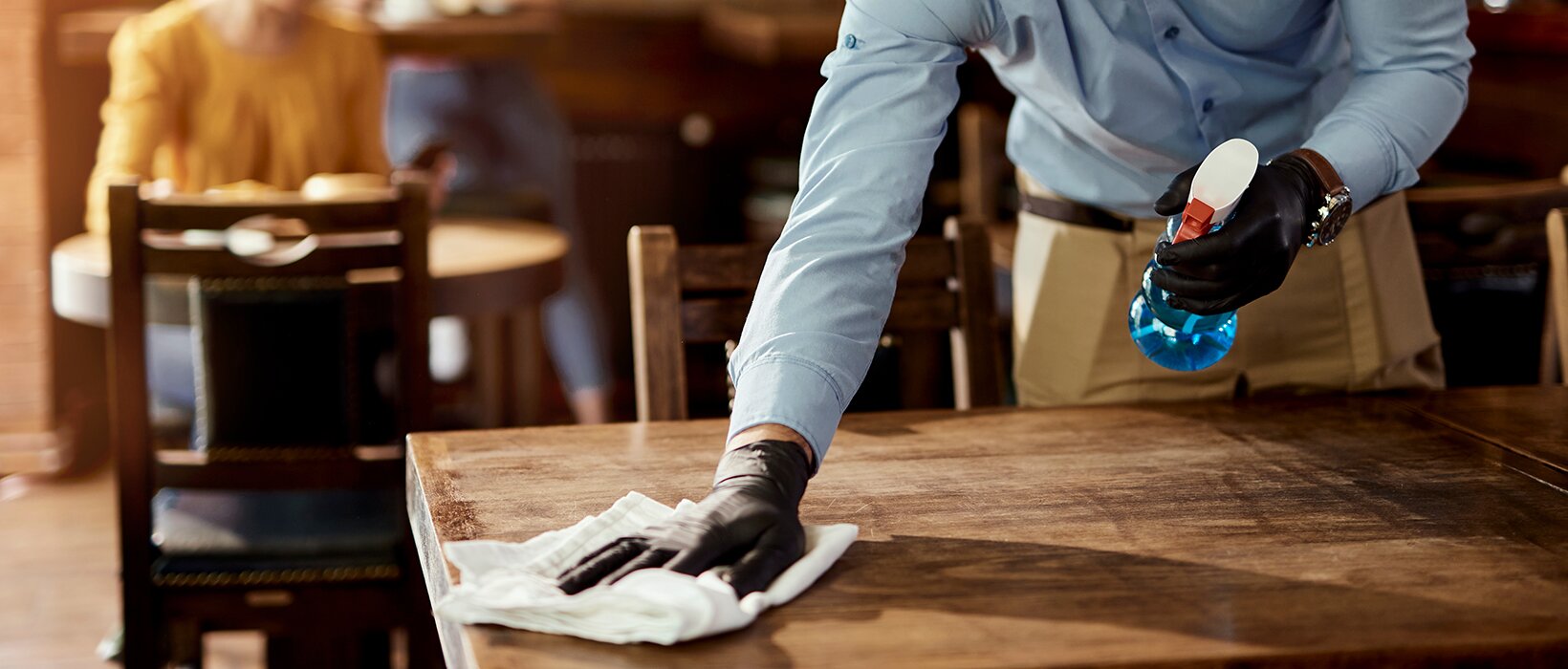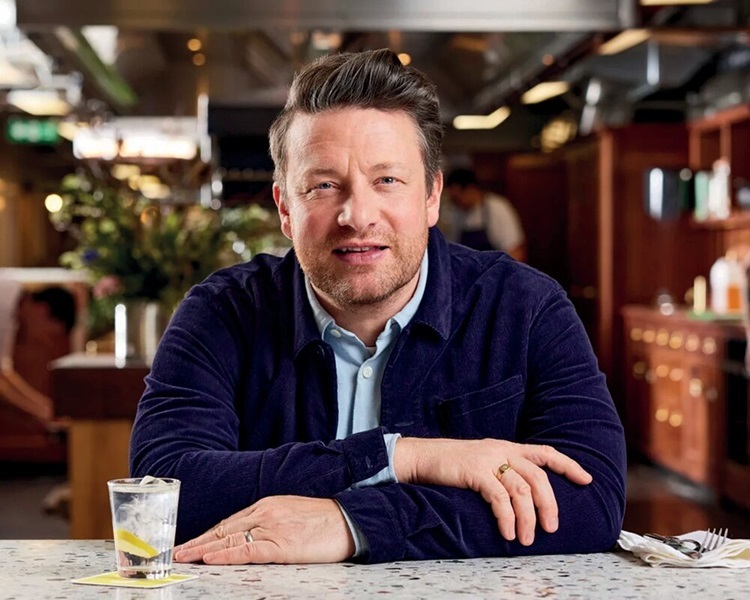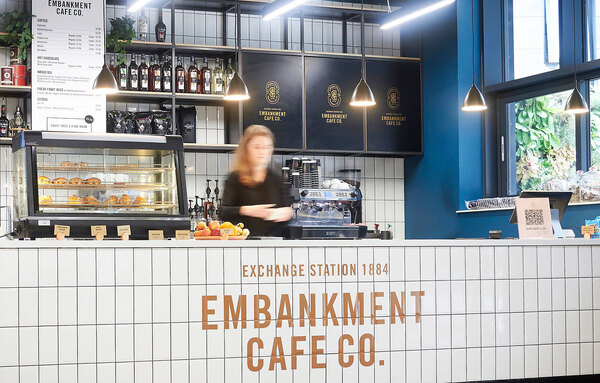Clear the air: cleaning products to Covid-proof your premises
It’s time to take your cleaning regime up a notch, with the latest hand sanitisers, steam cleaners and air purification machines. Lisa Jenkins reports.
Hygiene practices and standards in hotels, pubs, bars and restaurants are judged in many ways, including Trip- Advisor, certification, word of mouth and, of course, the Food Standards Agency’s (FSA) scores on the doors. The FSA’s hygiene ratings, coupled with visits by environmental health officers, are a snapshot of the standards of food hygiene found at the time of inspection, checking the handling and storage of food, the cleanliness of facilities and how food safety is managed. However, with the focus now on Covid-19, businesses need to remain vigilant to these and additional hygiene risks.
Joe Cripps, founder of food and safety compliance software Trail, says: “As the hospitality industry moves forward with reopening, businesses are now starting to think more about long-term survival. The ability to make changes quickly, turn them into team habits and be confident they are being carried out every day, is crucial.”
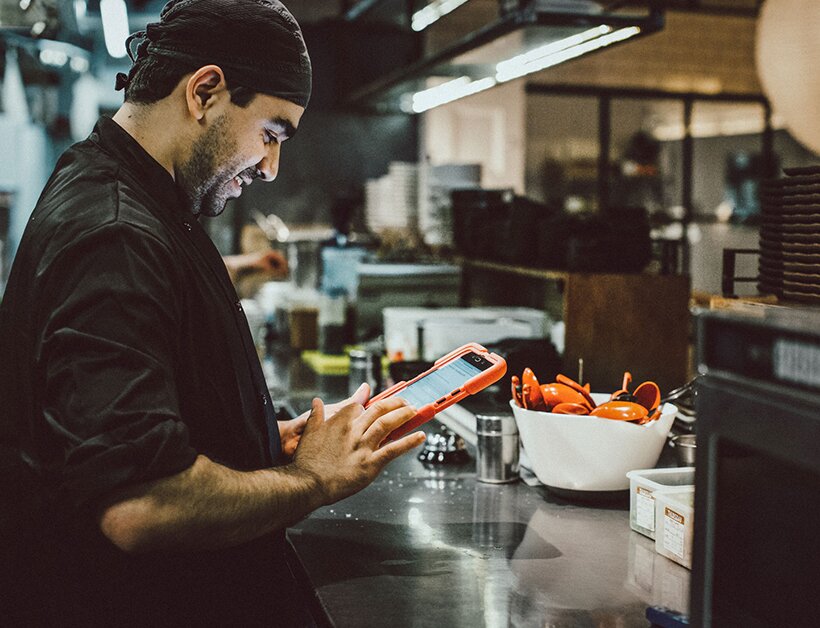
The benefit of Trail, whose customers include Wagamama, BrewDog and Costa Coffee, is switching from paper checklists and spreadsheets to a digital system which, it says, will improve hygiene at site level through better record keeping and instil better habits. It also offers how-to guides and videos for new starters through to seasoned managers, as well as real time data and reporting.
Hygiene and compliance management system provider Monika believes automation is an increasingly attractive option in the commercial kitchen. Monika’s UK director of sales Rag Hulait says that although we are all conditioned to wash our hands thoroughly and frequently, “there is no guarantee that such measures can be upheld as strictly as you might like, especially in a busy environment where space can be at a premium.” MonikaPrime is an app used on a handheld tablet that can give audible and visual reminders when a task is due, for example, to clean down equipment, change cloths and even to alert staff to wash their hands. By choosing to set a flashing ‘beacon’, staff will be in no doubt that the task is due and are more likely to complete it on time.
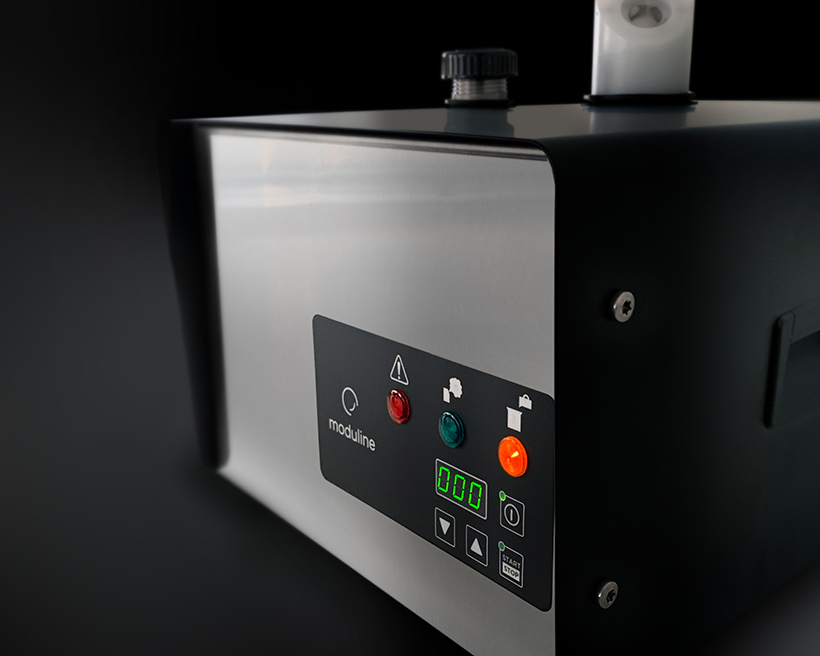
This is also the time to consider the cleaning products your team use. Steve Morris, sales director at Jestic Foodservice Solutions, says: “Hand sanitiser and the manual disinfection of surfaces only goes so far.” The new Hydrogen Peroxide Atomiser from Italian manufacturer Moduline, supplied by Jestic, dispenses a fine, atomised mist of hydrogen peroxide solution (7.5%), considered to be highly effective in the inactivation of the Covid-19 virus, both in the air and on surfaces. Hydrogen peroxide also neutralises other viruses and bacteria which may be present.
Equipment manufacturer Mechline’s marketing manager Kristian Roberts suggests the use of its compact, wall-mounted HyGenikx unit. It’s a plug-and-play option that uses a combination of air and surface sterilisation technologies proven to kill biological hazards and other primary sources of infection.
Air force
Fans distributor Axair Fans UK has spent the past three months investing heavily in the latest air purification and disinfection technology.
Its business development manager Anil Parker recommends the use of the Wellisair air purifier, which produces OH (Hydroxyl) radical particles that latch on to viruses, bacteria, allergens, mould, odours and volatile organic compounds, removing and destroying up to 99.9%.
Its Reintair air filtration unit will remove airborne pollutants, viruses and bacteria, and the AirPur unit produces ozone, which will deep-clean a space after a standard cleaning cycle by destroying airborne and surface bacteria and viruses.
Equipment distributor FEM offers a handheld solution in the form of the Pujadas’ UV lamp, which helps to kill 99% of germs. Many hospitals use UV lights in conjunction with traditional cleaning methods to help disinfect rooms and equipment. The Pujadas UV lamp can be used on tablecloths, covers, electronic devices and facemasks, taking just 20 seconds to break apart bacterial DNA, with no chemicals and no odour.
At your convenience
Moving away from kitchens and into the public washroom areas, it’s no surprise consumers are feeling anxious and unsafe in these environments. According to a new study from hygiene and health product supplier Tork, (an Essity brand), nearly eight out of 10 people in the UK feel more unsafe going to facilities with unhygienic public washrooms today compared to prior Covid-19.
The company’s international study on people’s attitudes regarding public hygiene found 87% believe it is critical to public safety to keep a high hygiene standard in public washrooms.
According to the research, 59% of people wish more facilities offered paper hand towels as an alternative to air dryers, as paper hand towels are perceived as more hygienic to the user (77%), dry hands more quickly (42%) and do not spread virus and bacteria in the air (45%).
Alberto Cajiga, vice-president of marketing at Essity Professional Hygiene, says: “The pandemic has shown that all businesses need to adapt to a new hygiene standard. Our findings suggest that today people view all public spaces as ‘hygiene critical’, because of the global pandemic.”
Cleaning machine manufacturer Kärcher explains that whether you are looking at viruses, bacteria or fungi, the right cleaning plays a big role in depriving these pathogens of their living conditions. Dirt offers micro-organisms a breeding ground until they find their way into the human body to reproduce. Therefore, disinfection measures are only effective if dirt has been removed from surfaces beforehand.
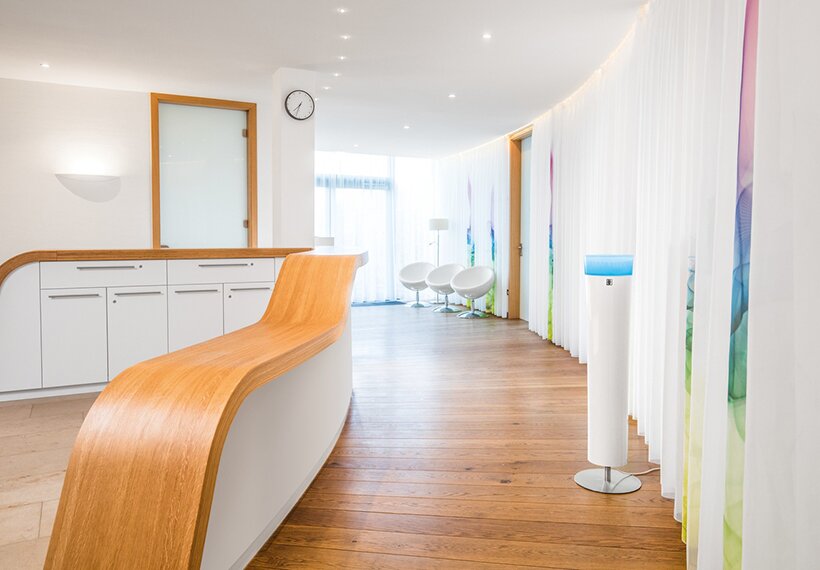
Steam cleaners and vacuum cleaners work at a high cleaning temperature. The steam emerges from the nozzle in very fine drops and, depending on the machine type, at a temperature of around 100°C and a pressure of up to 8 bar. These can be used to clean walls, floors and furniture effectively, but the steam also reaches areas that are difficult to access, such as rubber folds or crevices.
High-pressure cleaners can be used on large areas, such as ceilings, walls or floors, and hot-water machines accelerate the cleaning by up to 40% compared to cold-water models. Better results can be achieved more quickly, and the drying process of the clean areas is considerably shorter. To break chains of infection and remove all dirty residue, suitable cleaning products should also be used.
Kärcher recommends alternating between acid-based and alkaline foam cleaning products, as acids counteract the build-up of inorganic deposits, such as lime, and organic dirt is removed with alkaline cleaning agents. It also stresses the importance of ensuring tile joints are wet before using acid-based cleaning agents, so that they do not absorb the acids.
Hands, face, space
Warrington-based Christeyns Food Hygiene has been awarded the British Standards Institution (BSI) kitemark for hand sanitiser. Its Phago’rub Gel SPS and Phago’rub Solution SPS are hypoallergenic, alcohol-based sanitiser products that disinfect hands in only a 30-second contact time with virucidal efficacy under BS EN 14476, killing 99.99% of germs.
Both products contain 70% alcohol plus an emollient that helps protect the skin from dermatitis, a common side effect of frequent hand sanitisation.
Clifton Melvin, chairman of hand hygiene manufacturer EcoHydra, believes there is concern that high demand and low supplies of hand sanitiser may have meant some operators have bought any random, non-specific product they could.
He says: “Alcohol-based hand sanitisers dominate the market, but they have a number of drawbacks. The most significant one is that they evaporate immediately after application. This means that any contamination the hands received after using the hand sanitiser on entry to the premises – for example, by touching menus or tables – will remain on the hands. Alcohol-free brands with the best formulations keep killing germs for up to four hours after application – long enough to cover the duration of a restaurant or pub visit.”
Adds Melvin: “Alcohol hand sanitisers are flammable and having large quantities of a highly flammable liquid is not ideal in kitchens. Effective alcohol-free formulations represent a less risky solution.”
In addition to stricter hand washing protocols in washrooms, a study conducted by Lifebuoy brand owner Unilever Food Solutions has shown that 37% of consumers feel more comfortable eating out if antibacterial products are provided for free.
The brand offers a range of product formats specifically for the out of home market, including a 500ml countertop gel and a larger five-litre format for back of house. Lifebuoy also provides a range of branded point of sale tools.
Hands-free hygiene
Morris of Jestic suggests that another way of preventing cross-contamination after hand washing is by reducing the need to touch the taps altogether. The BaSix range of non-contact handwash stations from Mechline feature leg activation and soft-touch technology to achieve optimal hand hygiene while reducing water consumption.
He suggests operators should consider the location and number of washbasins that are required to reduce the risk of social contact and shared touchpoints.
And Williams Refrigeration has a foot-operated door opener that is compatible with its modular coldrooms – a simple device that allows staff to enter the coldroom without having to touch the door handle with their hands. The system incorporates a clip that holds the door latch open, so that the handle doesn’t need to be touched at all.
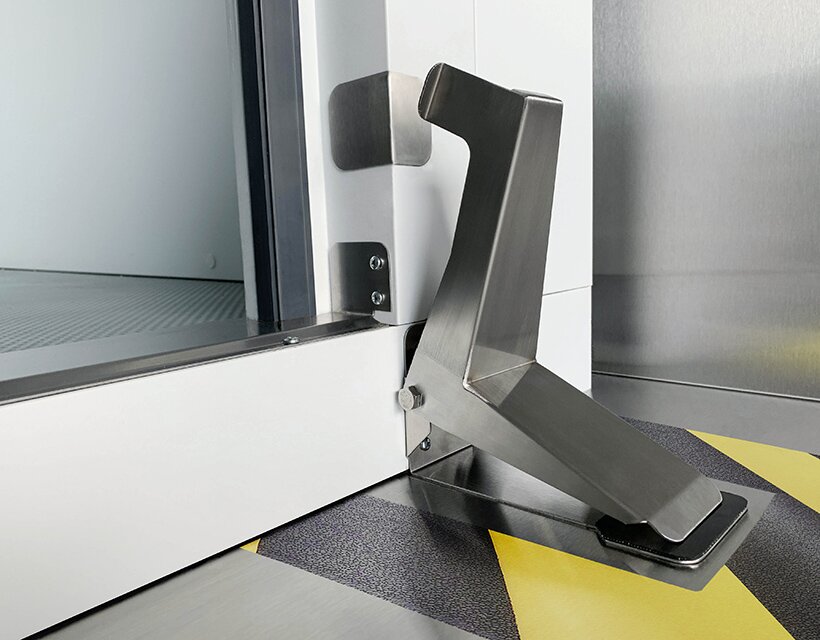
“The new foot-operated opener is going to make life easier for staff, and help them maintain stringent hygiene standards,” says Malcolm Harling, sales and marketing director of Williams. “The fact that it can be retro-fitted to existing Williams coldrooms is an important benefit, too.”
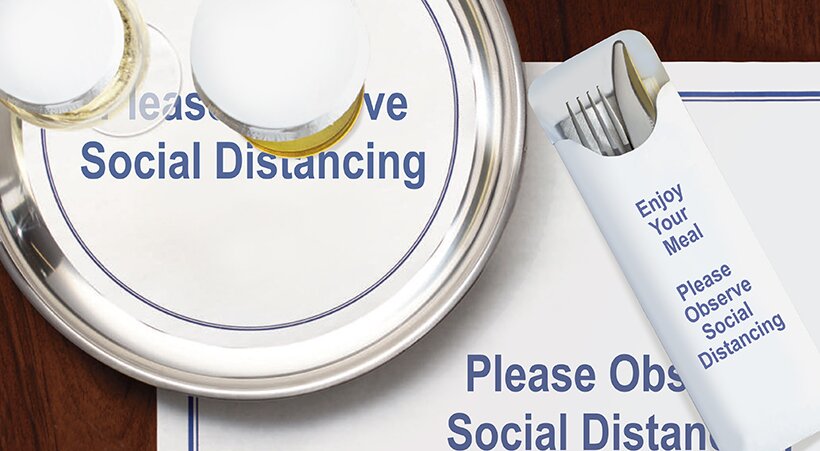
From a space perspective, and to facilitate social distancing, Celebration packaging supplies many different types of hygienic single-use paper table-top items, such as place mats and tray liners. Managing director Nick Burton says: “Single-use cutlery sleeves are also very popular as restaurants want their customers to know they are using clean, uncontaminated cutlery. Some restaurants are even using good-quality disposable plastic cutlery to give their clients the most hygienic experience possible.”
It’s a whole new world, and cleaners, kitchen porters and housekeepers will be worth their weight in gold.
Suppliers
Axair Fans UK www.axair-fans.co.uk
Celebration www.celebration.co.uk
Christeyns Food Hygiene www.christeynsfoodhygiene.co.uk
Ecohydra www.ecohydra.com
Foodservice Equipment Marketing (FEM) www.fem.co.uk
Jestic Foodservice Solutions www.jestic.co.uk
Karcher www.kaercher.com/uk/professional.html
Lifebuoy www.lifebuoy.co.uk
Mechline www.mechline.com
Monika www.monika.com
Tork www.tork.co.uk
Trail www.trailapp.com
Williams Refrigeration www.williams-refrigeration.co.uk



